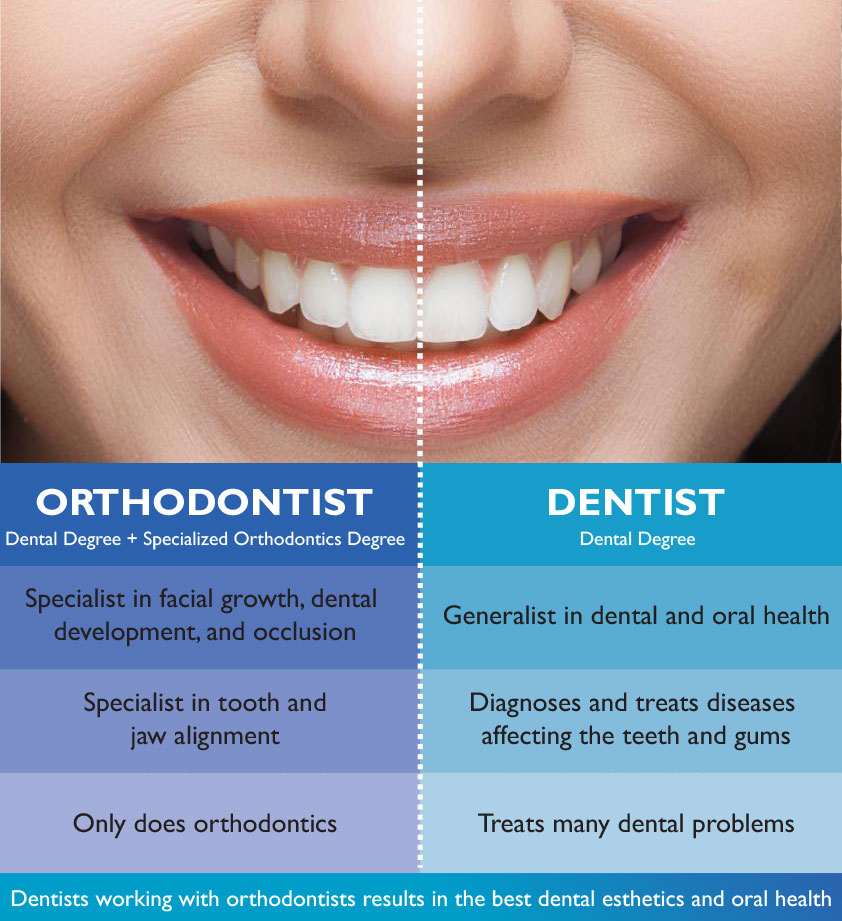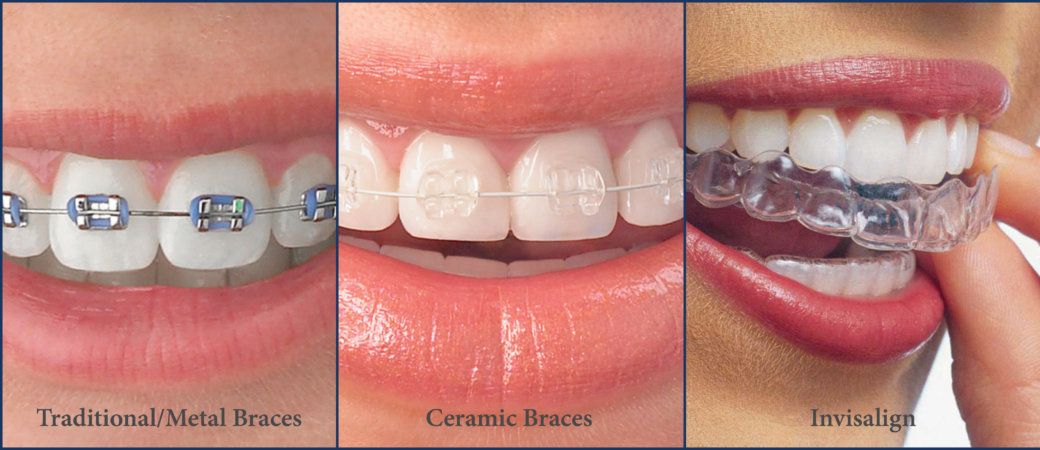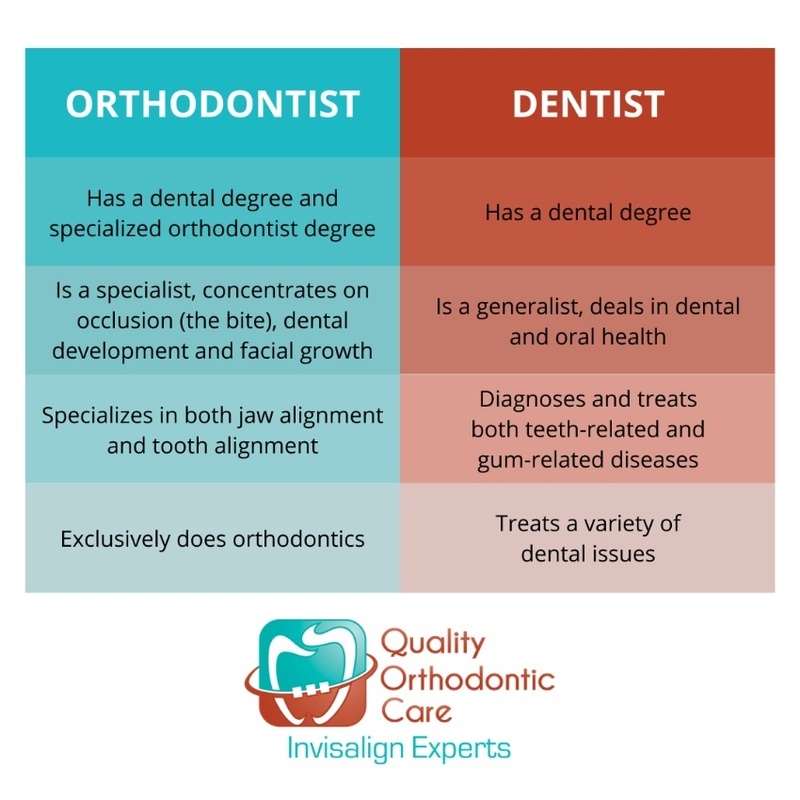Causey Orthodontics Things To Know Before You Get This
Causey Orthodontics Things To Know Before You Get This
Blog Article
5 Easy Facts About Causey Orthodontics Shown
Table of ContentsThe Definitive Guide for Causey OrthodonticsExamine This Report about Causey OrthodonticsGet This Report on Causey OrthodonticsLittle Known Facts About Causey Orthodontics.About Causey Orthodontics5 Easy Facts About Causey Orthodontics ShownCausey Orthodontics for Dummies
What is the difference in between a dentist and an orthodontist? To address a question that is typically asked, both dental experts and orthodontists help people acquire much better dental health, albeit in different means. It aids to bear in mind that dental care is an instead broad scientific research with different medical specializations. All dental experts, consisting of orthodontists, treat the teeth, gum tissues, jaw and nerves.
You can assume of both medical professionals who treat gum tissue and teeth troubles. The major distinction is that coming to be an orthodontist calls for a certain specialty in treating the imbalance of the teeth and jaw.
How Causey Orthodontics can Save You Time, Stress, and Money.
An orthodontist is a dental professional that has actually undergone training to specialize in the diagnosis, avoidance and therapy of abnormalities in the jaw and teeth. They can additionally identify potential issues in teeth placement that might create when conditions are left neglected (family orthodontics).
This includes all the necessary education to become a general dental expert. According to the American Student Dental Organization (ASDA), it implies you will certainly require to have either a Doctor of Medication in Dental Care (DMD) or a Physician of Oral Surgery (DDS). To put it simply, orthodontists need to finish dental institution and after that obtain an orthodontics specialized education.
Some orthodontists additionally get their masters in craniofacial biology. These programs concentrate on 2 particular locations or techniques: Dentofacial Orthopedics: This research concentrates on guiding teeth and jaw advancement.
The smart Trick of Causey Orthodontics That Nobody is Talking About

 These include device such as dental braces, retainers and Invisalign. What does an orthodontist do, and what do they focus on? The overall goal of an orthodontist is to improve a patient's bite. Not everyone is born with straight teeth, and an orthodontist will certainly make certain that clients obtain uniformly spaced straight teeth.
These include device such as dental braces, retainers and Invisalign. What does an orthodontist do, and what do they focus on? The overall goal of an orthodontist is to improve a patient's bite. Not everyone is born with straight teeth, and an orthodontist will certainly make certain that clients obtain uniformly spaced straight teeth.
Excitement About Causey Orthodontics
The American Organization of Orthodontists recommends your very first check up by age 7. You'll need to see your orthodontist if you have an imbalance in your teeth, also understood as malocclusion. Also, if you observe uneven bite patterns, a slightly askew jaw, or when your teeth are jammed, you will likely need orthodontic treatment.
In enhancement, we use adjustable treatment schedules, versatile repayment alternatives and a fun, satisfying experience.
An orthodontist is a dental practitioner educated to diagnose, prevent, and treat teeth and jaw abnormalities. Orthodontists function with individuals of all ages, from children to adults (https://www.pageorama.com/?p=causeyortho7).
The Best Strategy To Use For Causey Orthodontics
Malocclusion, or misaligned teeth, can cause dental problems, consisting of dental caries, gum condition, and challenging or excruciating eating. Yet not everyone is born with straight teeth. If you have a negative bite or huge areas in between your teeth, you might want to speak with a dental professional specializing in orthodontic care.
(Picture Credit Score: DigitalVision/Getty Images) Orthodontists utilize fixed and detachable dental devices, like braces, retainers, and bands, to transform the position of teeth in your mouth. Orthodontic treatment is for oral problems, including: Crooked teethBite troubles, like an overbite or an underbiteCrowded teeth or teeth that are also much apartJaw misalignmentThe objective of orthodontic treatment is to enhance your bite.
Everything about Causey Orthodontics

All orthodontists are dental experts, however not all dental professionals are orthodontists. Orthodontic residency programs use intensive, focused direction for dental professionals. They concentrate on 2 locations: How to properly and securely relocate teeth Exactly how to correctly guide development in the teeth, jaw, and faceOnce an orthodontist has finished training, they have the option to come to be board accredited.
Imbalance, or malocclusion, is one of the most common factor people see an orthodontist. It is genetic and is the result of dimension distinctions between the top and reduced jaw or in between the jaw and teeth. best orthodontist. Malocclusion results in tooth congestion, a misshapen jaw, or uneven bite patterns. Malocclusion is usually treated with: Your orthodontist affixes metal, ceramic, or plastic square bonds to your teeth.
Causey Orthodontics Fundamentals Explained
If you have only minor malocclusion, you may be able to utilize clear dental braces, called aligners, rather of conventional dental braces. Some individuals require a headgear to aid relocate teeth right into line with pressure from outside the mouth. After dental braces or aligners, you'll need to use a retainer. A retainer is a custom tool that keeps your teeth in position.
Report this page